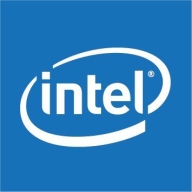

OpenVINO and Azure OpenAI are products catering to machine learning performance optimization and large-scale language model capabilities, respectively. OpenVINO appears advantageous for edge device integration, while Azure OpenAI provides superior features for cloud-based AI applications.
Features: OpenVINO provides advanced model optimization, supports heterogeneous execution, and is optimal for real-time applications on edge devices. Azure OpenAI offers access to powerful AI models, cloud service integration, and comprehensive support for natural language processing.
Ease of Deployment and Customer Service: OpenVINO allows easy deployment on edge devices with diverse hardware support and benefits from community-driven support. Azure OpenAI simplifies deployment within Azure's ecosystem and provides professional support with thorough documentation, enhancing ease of use in cloud environments.
Pricing and ROI: OpenVINO offers a low-cost entry with free licensing and efficient resource usage for edge devices. Azure OpenAI involves higher setup costs but provides substantial ROI through enhanced productivity and scalability with cloud infrastructure.


Azure OpenAI integrates advanced language models with robust security for precise information extraction and task automation. Its seamless Azure integration and drag-and-drop interface simplify implementation and enhance accessibility.
Azure OpenAI offers a comprehensive suite of features designed for efficient data processing and task automation. It provides high precision in extracting information and strong conversational capabilities, crucial for developing chatbots and customer support systems. Its integration with Azure ensures seamless data handling and security, addressing key enterprise requirements. Users can employ its versatile GPT models for diverse applications such as predictive analytics, summarizing large documents, and competitive benchmarking. Despite its strengths, it faces challenges like latency, inadequate regional support, and limited integration of new technologies. Improvements in model fine-tuning and more flexible configuration are desired by users.
What features make Azure OpenAI a reliable choice?Azure OpenAI is implemented across industries like healthcare, finance, and education for tasks like invoice processing, digitalizing records, and language translation. It enhances policy management, document assimilation, and customer support with predictive analytics and keyword extraction. Organizations in such sectors benefit from streamlined workflows and task automation.
OpenVINO toolkit quickly deploys applications and solutions that emulate human vision. Based on Convolutional Neural Networks (CNNs), the toolkit extends computer vision (CV) workloads across Intel hardware, maximizing performance. The OpenVINO toolkit includes the Deep Learning Deployment Toolkit (DLDT).
We monitor all AI Development Platforms reviews to prevent fraudulent reviews and keep review quality high. We do not post reviews by company employees or direct competitors. We validate each review for authenticity via cross-reference with LinkedIn, and personal follow-up with the reviewer when necessary.